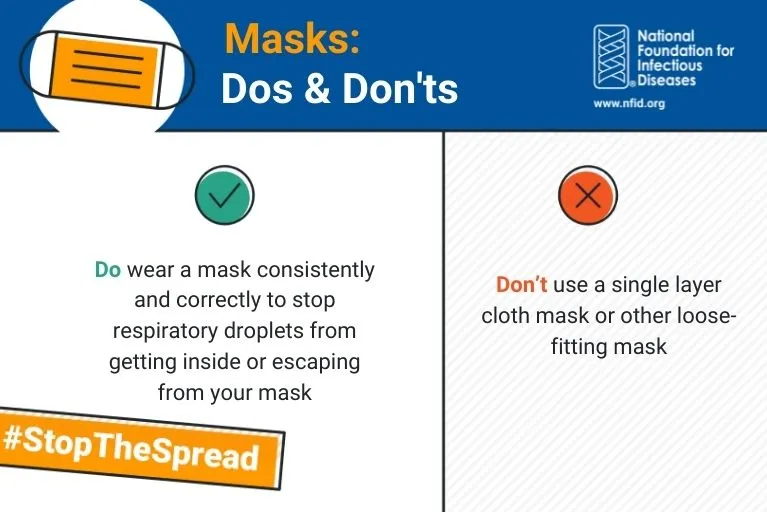
Wearing a mask that fits well in indoor public places can help protect you from COVID-19 and other respiratory diseases and help prevent you from spreading viruses to others. COVID-19 is still circulating, causing illness, hospitalizations, and deaths.
Wearing a mask may be helpful:
- if you have been exposed to, or tested positive for COVID-19
- if you or someone close to you has a weakened immune system or is at high risk for severe illness
- when you are sick, or caring for someone who is sick
- if you have an underlying health condition, are pregnant, or are age 65 years or older
- if you wish to, based on personal preference and personal risk
Using layered prevention strategies—like staying up to date on vaccines and wearing a mask—can help prevent serious illness. It is also important to wash hands frequently, cover your coughs/sneezes, and stay home when sick.
If you do wear a mask, be sure to follow these dos and don’ts:
| Dos | Don’ts |
|---|---|
| Do wear a mask that fits snuggly from nose to chin | Don’t wear a mask below your nose, around your neck, or on your forehead |
| Do wear a mask consistently and correctly to stop respiratory droplets from getting inside or escaping from your mask | Don’t use a single-layer cloth mask or other loose-fitting mask |
| Dispose of single-use masks in a trash bin | Don’t reuse disposable masks |
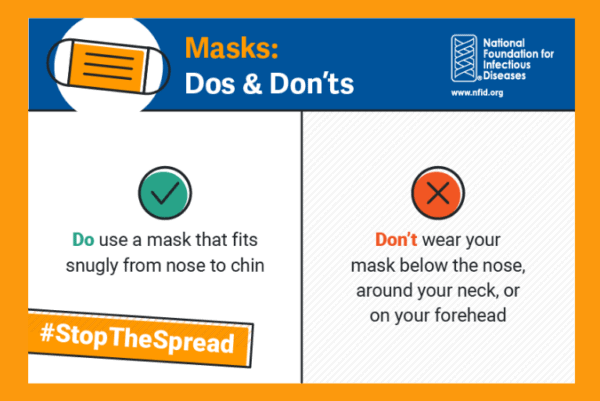
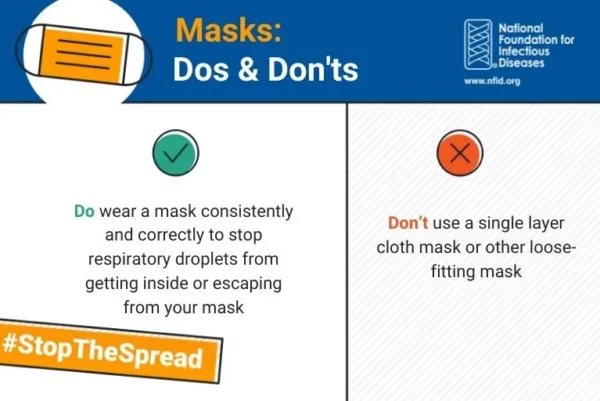
Reviewed September 2024
Source: Centers for Disease Control and Prevention
Related Resources
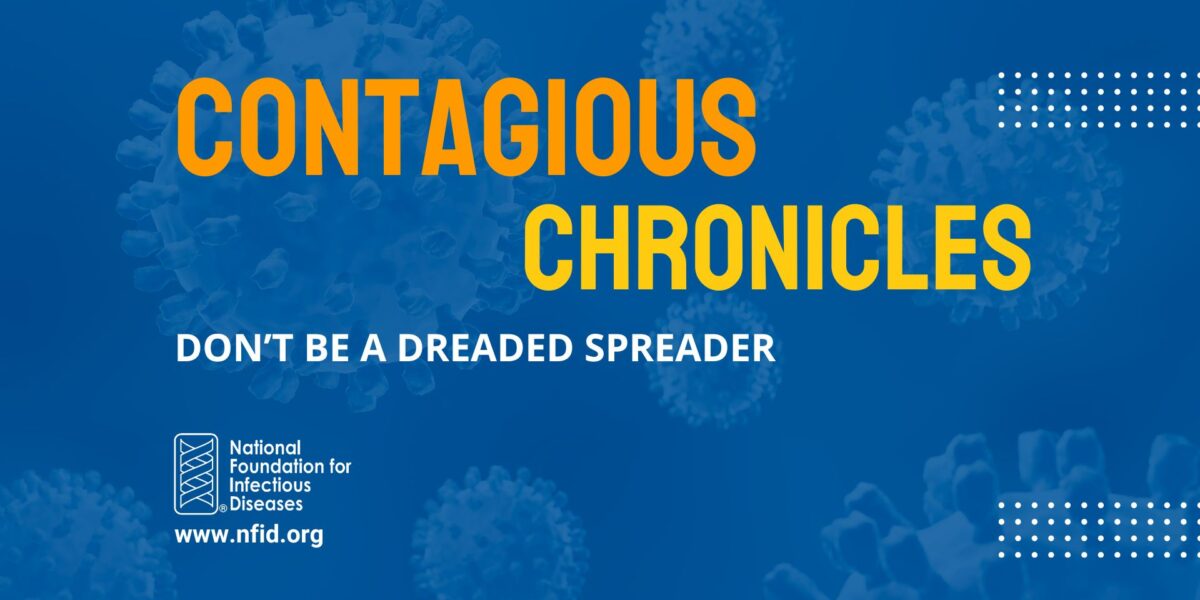
Don’t Be A Dreaded Spreader
In this episode, NFID experts offer insights on updated recommendations from the Centers for Disease Control and Prevention (CDC) to help prevent the spread of respiratory viruses, including COVID-19, influenza (flu), and respiratory syncytial virus (RSV)
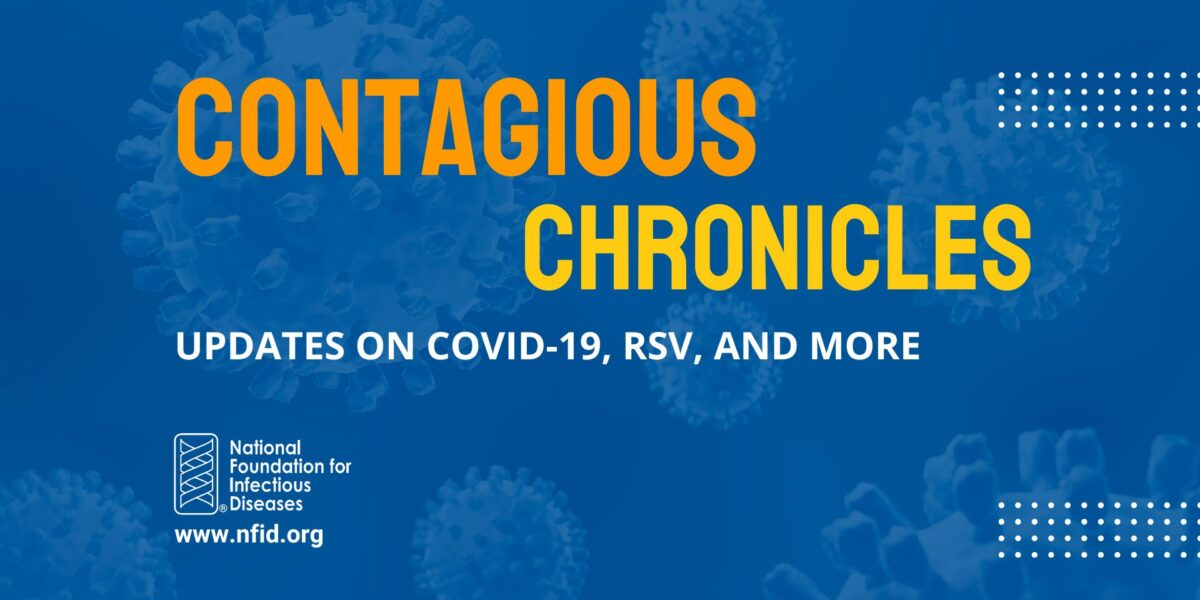
Updates on COVID-19, RSV, and More
In the inaugural episode, NFID experts discuss new COVID-19 vaccine recommendations for older adults and other updates from the February 2024 meeting of the Advisory Committee on Immunization Practices (ACIP) …
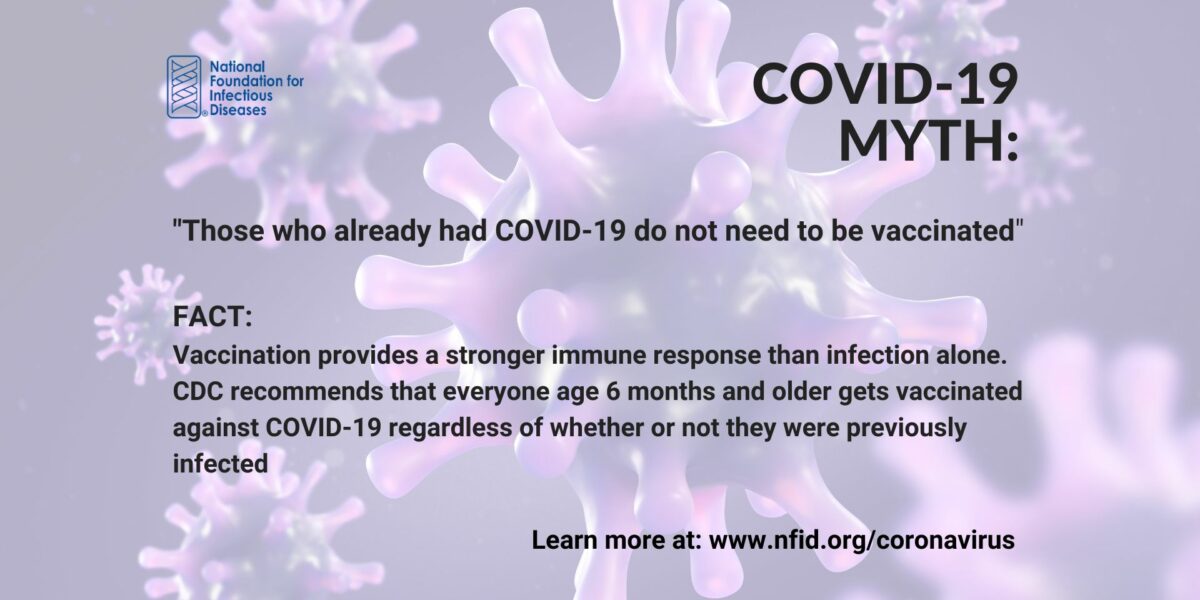
COVID-19 Graphics and Social Media Posts
Graphics and sample social media posts to help #StopTheSpread of COVID-19
